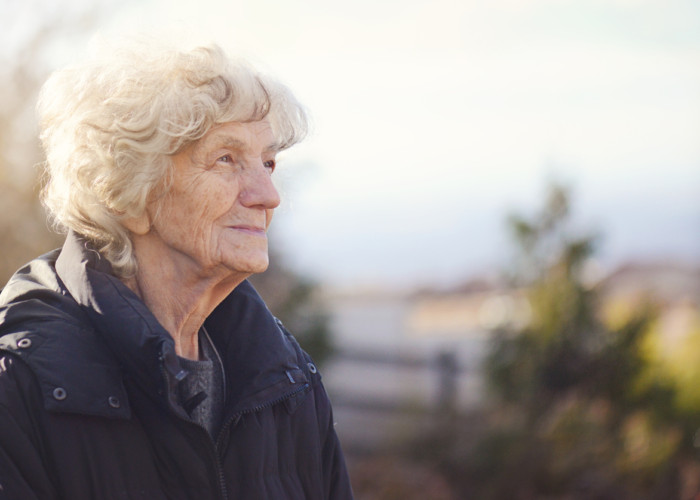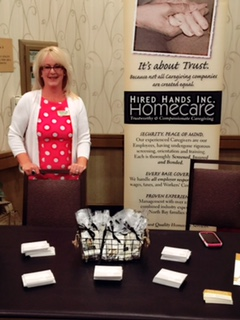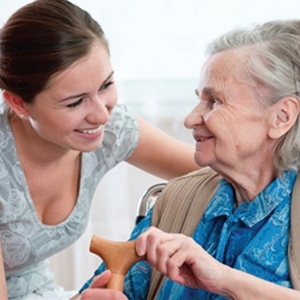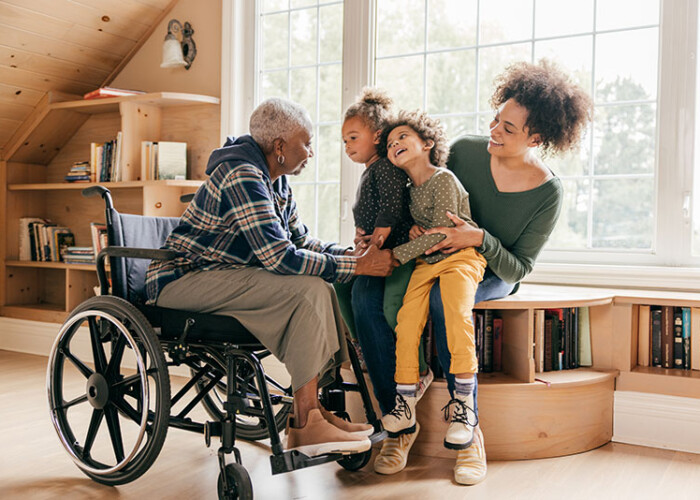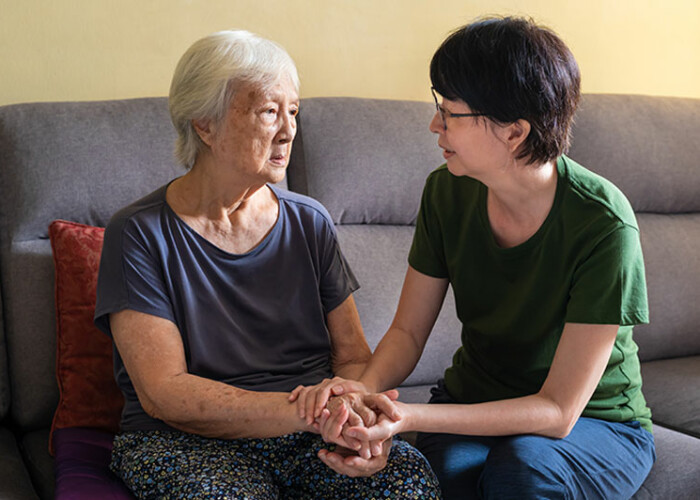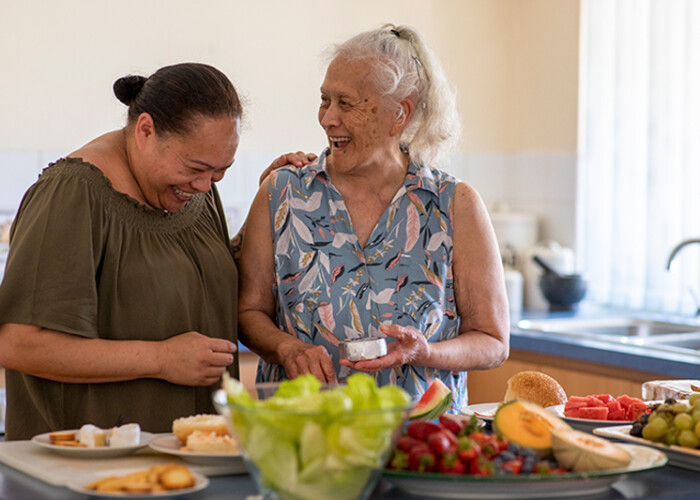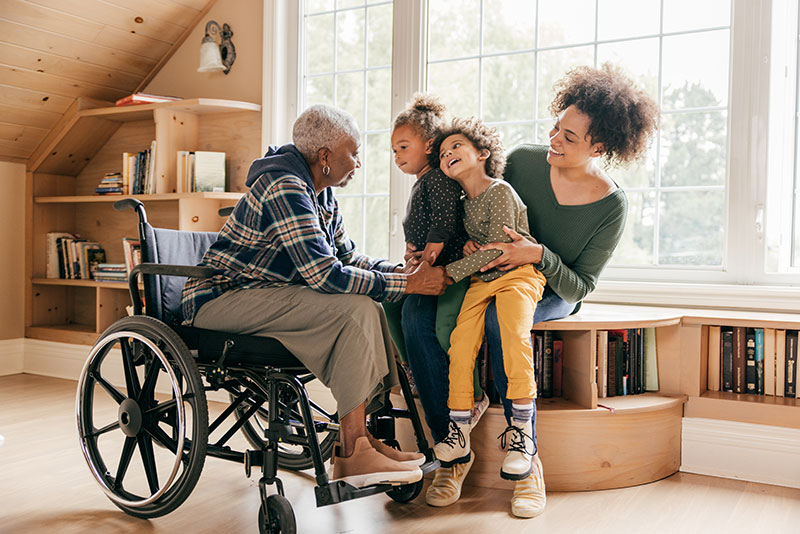Search Results for "alzheimer's"
How to Adapt Care Strategies Throughout the Levels of Alzheimer’s
Caring for a senior with Alzheimer’s disease can seem like attempting to solve a constantly changing puzzle. Once you determine the solution to one segment, you discover that the picture has changed, and you need to reconsider your plan of action for the next levels of Alzheimer’s.
Trying to figure out the puzzle of Alzheimer’s care demands continuous education and a group effort, including professionals specifically trained in the numerous facets of Alzheimer’s disease support. Hired Hands Homecare provides the following tips, courtesy of the Alzheimer’s Association, to help families in establishing care strategies throughout the levels of Alzheimer’s:
Early Stages: Family members can best assist a loved one with Alzheimer’s through planning together, offering a patient, calm, listening ear and memory prompts when needed. Strategies consist of:
Be a care advocate for your family member, offering emotional assistance and encouragement.
Help plan for … Read More »
Santa Rosa’s Director at the Alzheimer’s Conference
Phyllis manning the booth at The Alzheimer’s Conference
Learning to Deal With Alzheimer’s and Dementia in Pleasanton, Livermore & Dublin
Hired Hands Homecare is proud to present Cathy Wadleigh. Ms. Wadleigh is an LVN, PAC Certified Trainer, and group facilitator specializing in grief recovery and family transition.
Informative sessions focusing on helping families and individuals adjusting to living with Alzheimer’s and Dementia will be held at the Hired Hands Homecare Pleasanton office on the first and third Tuesday of the month, with two sessions 11:30-1pm, and 4:30-6pm.
For more information, please contact Cathy at 925-413-2080, or email her at Cathy@AssistanceWithAging.com.
Exciting New Advance in Curing Alzheimer’s Disease!
Consider the facts…
Currently, over 5 million Americans are diagnosed with Alzheimer’s Disease.
Every sixty-seven seconds, someone develops the disease.
Almost 2/3s of those with Alzheimer’s Disease are women.
Everyone knows someone who suffers from Dementia and/or Alzheimer’s Disease. We may not fully understand the disease, but we are fully aware of the challenges. Because of this, we were especially excited to read this recent report. Yesterday’s report out of Australia reports that huge strides have been made in laboratory tests, and that a team at the Queensland Brain Institute has come up with a possible advance that would successfully treat Alzheimer’s.
Hired Hands Homecare is very proud of our special Dementia/Alzheimer’s Team. This amazing group of Caregivers has received extensive specialized training, giving them the knowledge and tools to better assist families dealing with this difficult situation. If we may be of any … Read More »
Helping Alzheimer’s Patients…
This week, an interesting story aired on NPR regarding how researchers are discovering how different types of light affect people. What’s most impressive is how they’re using their findings, and applying them for helping Alzheimer’s patients and seniors. Both the interview and the transcript can be found here.
Is it Alzheimer’s, or Normal Aging – Know the 10 Signs
As we age, everyone gets forgetful now and then. Just the other day, I misplaced my keys. Sometimes, memory loss starts to become more frequent, disrupting life on a daily basis. This may be a sign of Alzheimer’s, or some sort of dementia, and these warning signs may be a good reason to check in with your doctor. The NorCal Alzheimer’s Association has a great set of tools at http://www.alz.org/alzheimers_disease_10_signs_of_alzheimers.asp.
The Importance of a Daily Routine for Someone With Dementia
Have you ever woken up from a dream feeling completely disoriented? The dream seemed so real, and it takes a moment to regain your bearings. For someone with dementia, this disorientation is a part of everyday life. One highly effective way to help is to provide as much stability as possible, and one of the best ways to accomplish this is by sticking to a daily routine for someone with dementia.
How Can a Routine Help Someone With Dementia?
Short-term memory loss makes it challenging for someone with Alzheimer’s to learn and remember new things. A familiar routine helps build self-confidence, reinforce a sense of independence, and reduce anxiety.
To establish the most comfortable routine for a loved one with Alzheimer’s disease, try the following:
Follow their lead. Retain any routines the person already has built: a morning shower before … Read More »
Hidden Disabilities in Seniors: How to Recognize and Combat Ableism
What’s your first thought when you see an individual in a wheelchair? Do you view that person as less-than, someone in need of being fixed? Do you assume they need special treatment, as though a physical disability impacts intellect as well? How does your thinking shift to see someone standing upright, without the need for a wheelchair; would you think they were better-abled than the wheelchair-bound older adult?
These are tough questions that call for honest answers if we’re to understand and respond accordingly to hidden disabilities in seniors and ableism.
What Is Ableism?
Ableism is identified as “the discrimination of and social prejudice against people with disabilities based on the belief that typical abilities are superior.” It leads to harmful misconceptions and stereotypes.
The Two Sides of the Disability Coin
Individuals with visible disabilities encounter ableism in many … Read More »
Could Alzheimer’s Disease Be an Autoimmune Condition?
Could Alzheimer’s disease be an autoimmune condition? Find out here!
Finding a cure for Alzheimer’s has become as tangled as the tau threads long thought to be the root cause of the disease. But now, research workers may be drawing one step closer to unraveling the puzzle of Alzheimer’s, by using a different train of thought. New studies are leaning towards the potential of an inflammatory response in the brain, which poses the question: could Alzheimer’s disease be an autoimmune condition?
Get Cooking With These Creative Dementia Care Activities
If there’s one thing that connects us all, it’s food! Think about how many cherished memories have been made through the years that included food at the center of them all: holiday meals, birthday parties, wedding celebrations. Even ordinary days include routines that become ingrained in us around food, from that first aromatic cup of coffee in the morning to a shared bowl of buttery popcorn with family while watching a show on television.
It really is no surprise that food is not just a necessity for our physical health, but often a powerful way to connect with someone with dementia. Here are several creative dementia care activities you can try to help spark memories while engaging all the senses through food.
Storytelling. Pull out an old cookbook and look through the recipes together to determine if any spark memories. … Read More »


